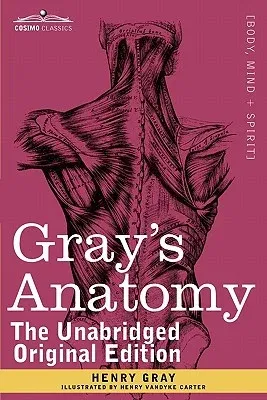Gray's Anatomy, published in the UK in 1858 under the original title
Anatomy: Descriptive and Surgical, is a detailed English textbook on
human anatomy, focused on teaching medical students human anatomy for
practical knowledge during surgery. This unique first edition includes
more than 300 pages of illustrations by H.V. Carter, M.D. Each image is
labeled with the corresponding bones, muscles, nerves, and organs. In
addition, the book is separated into chapters based on the systems of
the body for easy use. While Gray's Anatomy may no longer be a suitable
study guide for modern physicians, it is considered a classic work on
the subject and is a great reference for those interested in the origins
of the study of human anatomy. HENRY GRAY (1827-1861) was a renowned
British anatomist who studied at St George's Hospital Medical School in
London. His focus was on the endocrine glands and spleen until he
approached fellow colleague Henry Vandyke Carter to help him write a
comprehensive and accessible anatomy textbook. The team worked for more
than a year studying unclaimed cadavers to help write the text. It was
published in England in 1858 and in America only one year later. Gray
published the first two editions before it was acquired by Longman's in
1863, shortly after Gray's early death from smallpox.


